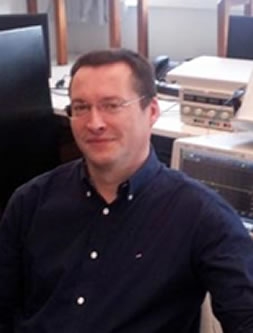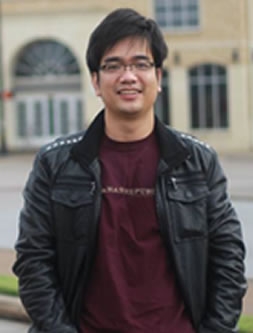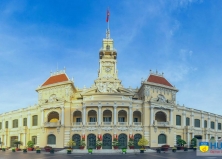2020
Special Session: Full-duplex communications for 5G & Beyond and IoT applications
In recent years, the fast development of wireless and mobile communication leads to the requirement of highspeed data transmission and optimization of power resources and spectrum sharing. Furthermore, 5G communication systems are comprised of a set of goals that must be achieved for future wireless networks. Also, the advent of the Internet of Things (“IoT”) allows for the extension or access of the internet to the physical world by the means of more and more numerous sensors, actuators or inter-connected equipment. This evolution operates equally well in the industrial domain (smart factory, transport, energy, …), as in the public domain (health, automation, …). It is indispensable to ensure integrity throughout the chain of transmission.
Furthermore, most communication systems are half-duplex and they use separate bands or time slots to transmit and receive signals. This leads to underutilization of available resources and inefficient flow of information between wireless systems. On the other hand, full-duplex transmission systems that transmit and receive simultaneously in the same frequency band overcome some of these issues. They have potential to increase spectral efficiency by either doubling the number of users or by doubling the communication channel capacity for each user in the same frequency interval allocated for half-duplex communications. However, the implementation of full-duplex systems is challenged by self-interference between the strong transmitted and the weak received signal at each transceiver device.
In this special session, all interesting full-duplex communication techniques are targeted: new channel codes and modulations codes schemes; digital self-interference cancellation algorithms; cooperative networks, semi-bind and blind channel adaptation algorithm; schemes based on adding interfering artificial signals (noise/jamming) to the transmitted information signals, etc...
Active Researchers in Full-duplex communications for 5G & Beyond and IoT applications are highly encouraged to submit their recent original works and results to this session. The covered topics include, but are not limited to, the following items:
- Secure communications for Full-duplex transmission
- Secure advanced spatial diversity techniques
- Secure resource allocation
- Advanced self-interference cancellation techniques for full-duplex
- Full-duplex relaying and cooperative communications
- Advanced coding and modulation techniques for Full-duplex
- MIMO, Massive MIMO, beamforming and time reversal
- Front-end-radio and testbed
- Spectrum sensing and cognitive radio
- Jamming resistant communications
- Green communications
- Novel multiple access networks
- Aerial access networks
- Front-end-radio, FD antenna system and testbed.
Co-Chairs
- Roland Gautier, Lab-STICC, University of Brest, France - Email: roland.gautier@univ-brest.fr

- Quang Hien Ta, International University, Vietnam National University of HCMC, Vietnam - Email: tqhien@hcmiu.edu.vn

- Anthony Fiche, Lab-STICC, University of Brest, France - Email: anthony.fiche@univ-brest.fr

Technical Program Committee
- Ala’eddin Abdel-Karim Mohammad Masadeh, AlBalqa Applied University, Jordan.
- Angela Digulescu, Telecommunications and Information Technology Department, Technical Academy “Ferdinand I”, Bucharest, Romania.
- Bao Quoc Vuong, Lab-STICC, University of Brest, France.
- Denis Lejeune, Lab-STICC, ENSTA Bretagne, Brest, France.
- Duy H. N. Nguyen, San Diego State University, USA.
- Duy Quang Le, Memorial University of Newfoundland, St. John's, Canada.
- Guixian Xu, Tampere University, Finland.
- Lap Luat Nguyen, International University, Vietnam National University of HCMC, Vietnam.
- Marc Le Roy, Lab-STICC, University of Brest, France.
- Mélanie Marazin, Lab-STICC, University of Brest, France.
- Telex M. N. Ngatched, Memorial University of Newfoundland, St. John's, Canada.
- The Dung Le, Chungbuk National University, Korea.
- Trung Phan Van, Chemnitz University of Technology, Germany.
- Tung Nguyen Tien, Industrial University, Vietnam.
- Van Chien Trinh, University of Luxembourg, Luxembourg.
Submission
All authors should prepare full versions of papers in Portable Document Format (PDF). Papers must be limited to six pages, including text, references, tables and figures, and should be submitted online (https://edas.info/N28121). All papers should be prepared according to the IEEE standard template (https://www.ieee.org/conferences/publishing/templates.html).
Submission link: https://edas.info/newPaper.php?c=28121&track=106937
Important Dates
- Submission deadline: 15th May 2021; June 10, 2021
- Acceptance notification: 15th July 2021; July 20, 2021
- Registration and camera-ready version: 15th August 2021; July 30, 2021
Publication
All accepted papers will be published in the ATC 2021 Conference Proceedings. Accepted papers will be forwarded to be published on IEEE Xplore®.
More information can be found at http://atc-conf.org/ or contact special session co-chairs.

